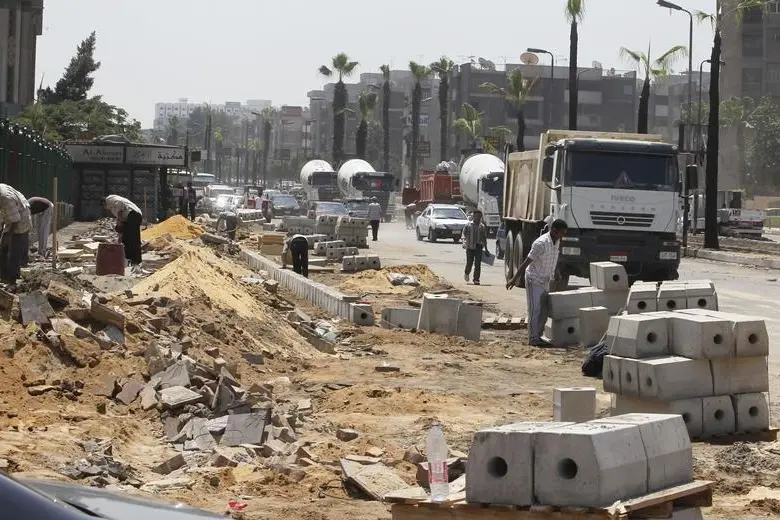PHOTO
Half of all Egyptians resort to bribery to access basic services, reports Nesma Nowar
Paying bribes to get things done in Egypt has long been common, especially when it comes to the public sector. This under-the-table practice still thrives, according to a recent report, which showed that around half of the Egyptian population resorts to paying bribes to access basic services.
The recently published Transparency International Report is based on a survey on corruption in the Middle East and North Africa (MENA) region in 2016. It polled 10,797 adult respondents between September 2014 and November 2015 in nine countries: Algeria, Egypt, Jordan, Lebanon, Morocco, Palestine, Sudan, Tunisia and Yemen.
According to the survey, Yemen has the highest level of corruption, with nearly four in five public service users paying a bribe (77 per cent). It was followed by Egypt, Sudan and Morocco, where around a half of the population have had to pay a bribe when they came into contact with a public service in the past year (48 to 50 per cent).
The survey shows that Egypt performs poorly in public sector bribery, showing one of the highest bribery rates for the region. Despite this, only 28 per cent of Egyptians believe that corruption is on the rise in their country, while 61 per cent of people in the MENA region say that it has increased in their countries.
The courts sector registered the highest corruption level in Egypt, where around 60 percent of the population pay bribes to access its services, according to the report. It was followed by the police, household services, IDs and permits, and public hospital sectors, where up to 45 per cent of the population pay bribes.
It is not only the public sector that suffers from corruption in Egypt. In the private sector, 38 per cent of respondents believe that most or all of the private sector's executive managers are corrupt.
According to Transparency International, Egyptians believe that senior state officials have cleaner hands and consider people lower in the hierarchy responsible for corruption. Only 12 percent of the respondents believe presidency officials and the prime minister are corrupt. The report noted that the survey conducted in Egypt asked about "officials in the presidency" rather than the "president and officials in his office" and "court officials" rather than "judges and magistrates".
Shehata Mohamed Shehata, the director of the Arab Centre for Integrity and Transparency, agrees with the survey that corruption in courts is the highest. However, he said it is confined to employees in the sector rather than judges.
But Shehata did criticise other findings of the survey, describing them as "inaccurate". He said there are certain sectors stated in the report that are not representative of the situation in Egypt and that some categories are ambiguous, like the utilities and permits sectors.
He added that in Egypt's case the report did not include corruption in the ministries of agricultural and housing which, along with its adjacent authorities, suffer from very high corruption levels.
However, this does not dismiss the fact that corruption appears to be widespread in Egypt. Shehata said that the reason why corruption in Egypt is growing is that the government's attempts to fight it have been so far unsuccessful and Egyptians have not seen any results.
He said that the government drew up a five-year strategy to fight corruption, starting in late 2014, but that it has been ineffective so far because of the absence of a unified entity responsible for its implementation.
He added that there are some individual attempts by government officials to combat corruption, which has been successful but this has not been enough. "It is better for the government to work along one clear strategy to fight corruption," Shehata told Al-Ahram Weekly.
The survey recommends reporting corruption and refusing to pay bribes as the most effective way the public can make a difference in the fight against corruption (24 and 25 per cent, respectively).
According to the survey, 53 per cent of Egyptians believe that ordinary people can make a difference in fighting corruption, while a sizeable minority feels disempowered. However, the survey says that people in the MENA region are still afraid to speak out against corruption because of fears of reprisals.
Because of this, it recommended the development of effective anti-corruption mechanisms that need to go hand in hand with guaranteeing rights of freedom of expression and freedom of association across the entire region.
It also calls for ways to improve reporting channels which entail the government passing and implementing whistleblower protection laws and mechanisms. Shehata said that the protection of witnesses and whistleblowers is enshrined in Egypt's constitution, which stipulates that the state is responsible for the protection of witnesses. That's why a law that protects witnesses and whistleblowers should be issued soon, he said.
"This will help in fighting corruption by encouraging people to report corruption issues without fear," he said.
Egypt ranked 88 out of 168 countries in Transparency International's Corruption Perception Index 2015, with a score of 36. The scale equates a score of zero with being highly corrupt and 100 being very clean. The 2015 score represents a slight fall from the year before when Egypt's score was 37.
© Al Ahram Weekly 2016





















